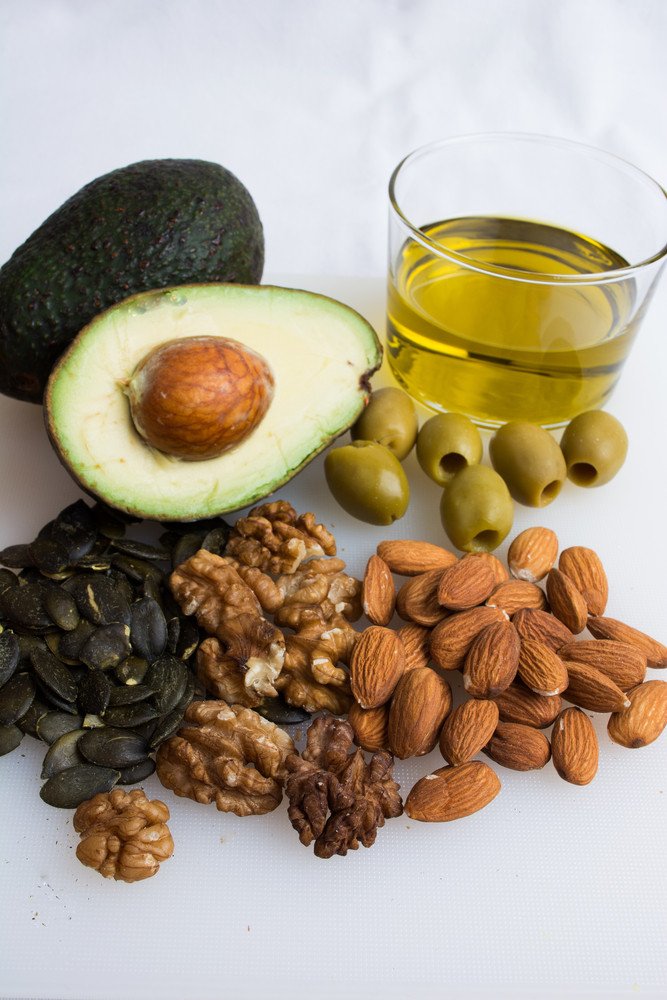There is a growing awareness that consuming a primarily plant-based diet is crucial for good health. Studies are showing that swapping animal proteins for plant-based proteins can help improve your longevity and lower your chances of lifestyle disease. Not to mention, lowering your intake of animal-based products is also a fantastic way to improve your carbon footprint and do your part for the environment. (1) So, how does influence your beauty regime? It turns out – quite a lot. More and more studies are showing that by leading a high plant-based diet and minimising or eliminating your intake of animal products, you’re actually doing your skin a favour too.
What is a whole-food, plant-based diet?
A whole-food, plant-based diet consists of eating unprocessed and unrefined foods (or as little processed and refined as possible) and mainly vegetables, legumes, whole grains, tubers and fruits – where meat and meat-based products (such as dairy and eggs) are either minimized or excluded altogether.
To keep healthy on a plant-based diet, or on any eating regimen for that matter, it’s crucial that the diet consists primarily of whole-foods as well. This cannot be overstated: Just because its veggie-based, doesn’t make it healthy. There are still some vegan-friendly foods that are still not very good for your skin, or your health, as they are refined, processed and cause an inflammatory immune response. The main processed foods to stay clear of include: Refined sugars, refined flours and trans-fats. (2)
How does a plant-based diet benefit your skin?
Plant-based diets can (3):
- Reduce inflammation
 Plant-based foods are known to lower inflammation and increase alkalinity in the body – especially from consuming foods rich in omega-3 fatty acids. (4) Why is this important for your skin? Inflammation is a natural part of your immune system’s response to protect itself from harmful factors and it’s an important one because it signals that your body is processing something cannot tolerate. Some of these harmful factors include pollution, sun exposure and dietary choices. Inflammation that is not addressed can become chronic, and that’s when it becomes a real danger.One of the main causes of chronic inflammation is due to a process called glycation: This is basically the process of sugar molecules binding to, damaging or even breaking down essential proteins in our body – this includes collagen in our skin. The damage glycation does is not only linked to accelerated aging, but to life-threatening lifestyle diseases such as vascular disease and atherosclerosis. (5) Eating refined sugars as well as being exposed to pollution and sun exposure are some of the factors that can trigger the process of glycation. (6)
Plant-based foods are known to lower inflammation and increase alkalinity in the body – especially from consuming foods rich in omega-3 fatty acids. (4) Why is this important for your skin? Inflammation is a natural part of your immune system’s response to protect itself from harmful factors and it’s an important one because it signals that your body is processing something cannot tolerate. Some of these harmful factors include pollution, sun exposure and dietary choices. Inflammation that is not addressed can become chronic, and that’s when it becomes a real danger.One of the main causes of chronic inflammation is due to a process called glycation: This is basically the process of sugar molecules binding to, damaging or even breaking down essential proteins in our body – this includes collagen in our skin. The damage glycation does is not only linked to accelerated aging, but to life-threatening lifestyle diseases such as vascular disease and atherosclerosis. (5) Eating refined sugars as well as being exposed to pollution and sun exposure are some of the factors that can trigger the process of glycation. (6) - Boost your body with essential vitamins, minerals and antioxidants
Fruits, veg, nuts, seeds and legumes are all packed with the essential nutrients your body needs to thrive – this includes your skin. Vitamin’s E and C in particular are known to protect your skin from sun exposure, decrease wrinkles and photo damage you already have; while Vitamin A is essential for maintaining and repairing your skin tissue. Vitamin B Complex (and in particular Biotin which forms the basis of your skin, hair and nails) is crucial to keep your skin barrier function strong and protect against external harms. (7) Don’t forget the minerals needed for healthy skin – including zinc, copper and selenium – which also help with skin barrier function, protection against free-radicals and preventing skin conditions, such as acne. (8) - Improve digestion
 It may not be the most obvious link, but your digestion and skin health are very closely related. If you’re not getting enough healthy fats in your diet, it’s likely your skin will be drier than it should be and your digestion won’t work as well as it should.It’s also crucial that you have enough good bacteria, known as probiotics, present in your gut. You can get high quantities of probiotics from fermented foods such as sauerkraut, pickles, Kombucha tea, kimchi and even miso soup. By having enough probiotics in your gut, your body is able to activate vitamin K, magnesium, calcium, zinc and some B vitamins as well as fight unwanted bacteria and yeasts – all of which benefit your skin health. It also helps reduce your skin of rosacea, easy burning from sun exposure and inflammation. (9)
It may not be the most obvious link, but your digestion and skin health are very closely related. If you’re not getting enough healthy fats in your diet, it’s likely your skin will be drier than it should be and your digestion won’t work as well as it should.It’s also crucial that you have enough good bacteria, known as probiotics, present in your gut. You can get high quantities of probiotics from fermented foods such as sauerkraut, pickles, Kombucha tea, kimchi and even miso soup. By having enough probiotics in your gut, your body is able to activate vitamin K, magnesium, calcium, zinc and some B vitamins as well as fight unwanted bacteria and yeasts – all of which benefit your skin health. It also helps reduce your skin of rosacea, easy burning from sun exposure and inflammation. (9)
Which plant foods are best for your skin?
- Avocados
There’s almost nothing bad to say about avocados. They’re high in all the essential nutrients your body and your skin need to strive, including: Vitamins E and C; antioxidants such as lycopene and beta-carotene; and essential fatty acid Omega 3.
need to strive, including: Vitamins E and C; antioxidants such as lycopene and beta-carotene; and essential fatty acid Omega 3. - Walnuts
While nuts are a healthy source of unsaturated fats, not all nuts are created equally as quite a few are richer in Omega 6 than Omega 3. While Omega 6 is an vital nutrient, it’s important to know that it can be inflammatory in high doses. Omega 3, on the hand, does quite the opposite and helps reduce inflammation (10). Walnuts are particularly high in Omega 3, zinc, selenium and antioxidants – making them ideal for a skin-healthy diet. - Sunflower seeds
Both nuts and seeds are nutrient-packed and therefore generally good for our overall wellbeing and skin health in the right portions. Much like walnuts, however, sunflower seeds are another star within their group as they are high in selenium, zinc, linoleic acid and Vitamin E. - Bell peppers, sweet potatoes and leafy greens
What do peppers, leafy greens and sweet potatoes have in common? They are all an excellent source of beta-carotene, an antioxidant that is converted to Vitamin A in the body. This is not only essential for youthful skin, but for improving your overall longevity as well. (11) - Broccoli
While broccoli are also a great source of beta-carotene, lutein, Zinc, as well as Vitamins A and C – they have a particular claim-to-fame as well. Broccoli are high in a chemical compound called sulforaphane which has incredible benefits for your overall wellbeing and skin health. (12) Not only has sulforaphane proven to have antioxidant, anti-microbial and anti-inflammatory properties; it is also proven to protect your skin against sun damage. (13)



 It may not be the most obvious link, but your digestion and skin health are very closely related. If you’re not getting enough healthy fats in your diet, it’s likely your skin will be drier than it should be and your digestion won’t work as well as it should.It’s also crucial that you have enough good bacteria, known as probiotics, present in your gut. You can get high quantities of probiotics from
It may not be the most obvious link, but your digestion and skin health are very closely related. If you’re not getting enough healthy fats in your diet, it’s likely your skin will be drier than it should be and your digestion won’t work as well as it should.It’s also crucial that you have enough good bacteria, known as probiotics, present in your gut. You can get high quantities of probiotics from  need to strive, including: Vitamins E and C; antioxidants such as lycopene and beta-carotene; and essential fatty acid Omega 3.
need to strive, including: Vitamins E and C; antioxidants such as lycopene and beta-carotene; and essential fatty acid Omega 3.![women [longevity live]](https://longevitylive.com/wp-content/uploads/2020/01/photo-of-women-walking-down-the-street-1116984-100x100.jpg)










